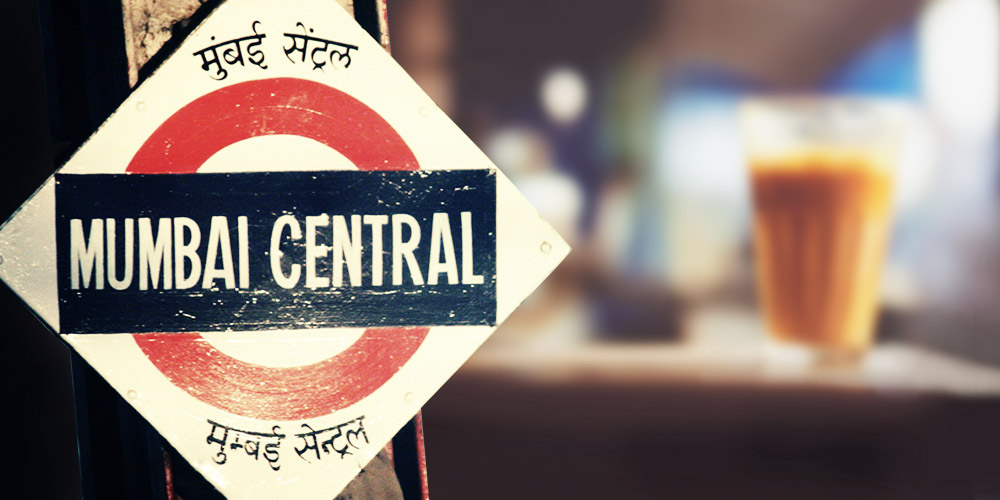I come from a family of tea drinkers. My mother’s side of the family even had gradations: there were tea pots (who could drink tea at any time of the day), tea caddies (who were fussy about their tea and only drank specific kinds of tea made in specific ways) and teapoys (those who made good tea or served it, a kind of pun that crosses between sepoys and teepoys, low serving tables).
Tea was a fact of life on both side of the family. When I found out that most Indian families did not encourage their children to drink tea – milk seems to be the tipple of parental choice for growing humans – the notion seemed odd alien puritanical. For instance, when my sister and I came home from school, we had a snack called ‘bheezoun-bheezoun’ (which could be translated roughly from the Konkani as ‘soaked soaked’). This was made by soaking last night’s chappatis in tea. We didn’t like it terribly much – I must say it wasn’t an appetizing dish, not particularly healthy – but we ate/drank it all the same.
[bctt tweet=”Tea became a punctuation mark, a reward for a deadline met, succor for the deadline broken, a social lubricant, sometimes it would be all of the above on a single day.”]
There were two kinds of tea in our world. There was home tea, a rich concoction, overboiled, sweetened, milky, spicy, fragrant, boiled together and then poured straight into those white mugs with the navy borders, what are they called? Then there was Byculla tea (Byculla is the area in central Mumbai where my maternal grandmother lived with a brood of dependents), the tea of genteel poverty. It was made in a tea pot which had a tea cosy and was served in fine china that was slightly stained or chipped. Since tea leaves were expensive, it was made with tea powder and water was constantly added to the pot until the brew came out almost colorless. It tasted like nothing, was barely sweet but it was drunk all the time, with much relish. When I became a private tutor of mathematics, tea changed dramatically. I was introduced to Marwari tea, made with only milk and with cloves to kill. I drank Gujarati tea, sweetened until you could taste nothing but sugar. As a journalist, I drank what Mumbaikars call Irani chai, overboiled again, a bright orangey-brown, over-sweetened, served in glasses, accompanied by a nicotine fix and political debate. Tea became a punctuation mark, a reward for a deadline met, succor for the deadline broken, a social lubricant, sometimes it would be all of the above on a single day.
When I went to West Bengal, I discovered how odd our notions of sophis-tea-cation can be. I was in a small village, barely a huddle of homes, called Amadpur to witness Durga Puja in a baari or traditional thakur home. The family was vast, spanning four generations and no one who smoked would do so in front of anyone who was from an earlier generation. This meant that the youngest members would trek into the village for a quick nic-fix. And that was where I discovered lehbu cha, lemon tea, being served by a tiny stall in the village. Now, in Mumbai, you find lemon tea only in the homes of the elite or in the tea-shops that charge you a bomb for the privilege of parking your bum on their premises. The lower middle-class places, and even those that cater to the middle class, would have no idea how to make a light brew and then spike it with lemon. This guy, in the middle of nowhere, did. But then this is home to Darjeeling and the tea estates so one must grant them a little more savvy. I never drink tea in South India. It’s generally coffee there.
Okay, tea at Casa Pinto.
Find a small vessel. We don’t do tea pots in Mahim (in Mumbai). Fill it with as many cups of water as you anticipate. Tear open two elaichi (cardamom). Rip up a strand of lemon grass from balcony herb garden. Darn, we’ve run out of elaichi. Okay, cinnamon stick, one inch long, well-thumped. No cinnamon, okay, a clove or two. No clove, no cinnamon, no elaichi? More lemon grass. Chuck them in. Then turn on the fire. One level teaspoon of tea leaves for each cup. If you want it really strong, (emergencies, examinations) throw in one for the cup. Slap lid over it and wait till it boils. Heat milk separately. Pour a finger of milk into a cup. Strain and pour the liquor in. Add sugar, one spoon because I’m on a diet, another spoon because it won’t taste good and that will mean the first spoon is wasted and so you might as well. Dip buttered bread or biscuits into it. Breakfast is ready.

